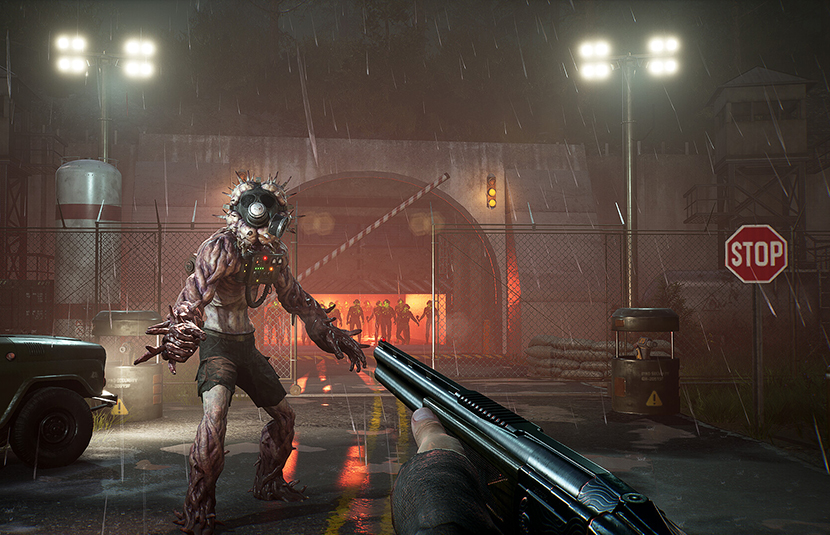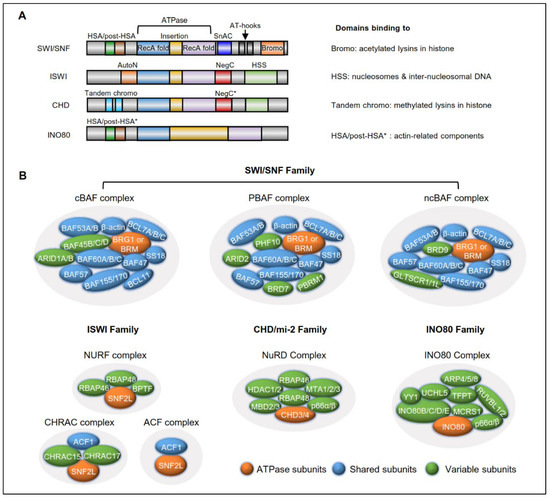Introduction:
Silent Hill, a legendary survival horror franchise, is renowned for its ability to delve into the darkest corners of the human psyche. Developed by Konami, this series has been captivating players for decades with its chilling atmosphere, spine-tingling horror, and psychological twists. In this article, we will explore the psychology behind Silent Hill’s unique ability to hook players and keep them enthralled.
Silent Hill’s psychological grip begins with the environment. The eerie fog-shrouded town, ominous industrial landscapes, and dilapidated buildings create a foreboding atmosphere that evokes feelings of isolation and vulnerability. The player is immediately drawn into this unsettling world, where danger lurks around every corner.
One of the key elements that keeps players engaged is the fear of the unknown. Silent Hill excels in the art of psychological horror by withholding information and presenting players with enigmatic scenarios. This deliberate ambiguity leaves players questioning their surroundings and the motives of the characters they encounter. It taps into the primal fear of uncertainty, making players constantly second-guess their choices.
The use of sound and music in the Silent Hill series is another psychological masterpiece. The haunting, dissonant melodies and distorted soundscape contribute to a feeling of unease. The auditory experience in the game is carefully designed to trigger emotional responses, from anxiety to dread. This subtle manipulation of sound heightens the psychological impact on players, making them more immersed in the experience.
Characters and their psychological struggles play a pivotal role in the series. Protagonists often grapple with their own inner demons, blurring the line between reality and delusion. The personal, psychological journeys of these characters resonate with players, as they navigate their own fears and uncertainties.
Lastly, the use of symbolism and surrealism in Silent Hill adds depth to its psychological narrative. Nightmarish creatures, disturbing imagery, and cryptic messages all contribute to a sense of disorientation and psychological horror. Players find themselves deciphering these symbols, trying to make sense of the madness.
In conclusion, the psychology of Silent Hill’s ability to hook players lies in its masterful use of atmosphere, fear of the unknown, sound, character psychology, and symbolism. This combination creates a captivating and unsettling experience that keeps players engaged and psychologically invested in the game world. It’s a testament to the power of psychological horror in the realm of video games.
For additional details, consider exploring the related content available here Paulo Freire’s Pedagogy of the Oppressed
Fear of the Unknown:
Silent Hill’s success lies in its mastery of the fear of the unknown. The fog-enshrouded town conceals horrors lurking just beyond the player’s vision, fostering a sense of impending doom. This deliberate obscurity amplifies tension, as players are forced to confront their own imagination and deepest fears.
“Silent Hill’s brilliance lies in its ability to plunge players into a nightmarish world where the line between reality and hallucination blurs. The series’ emphasis on psychological horror, disturbing symbolism, and unsettling sound design has left an indelible mark on the horror gaming genre, making it a true classic.”
For a comprehensive look at this subject, we invite you to read more on this dedicated page: Mapping the Margins: Intersectionality, Identity Politics, and Violence …

Isolation and Vulnerability:
The feeling of isolation is a cornerstone of Silent Hill’s psychological horror. Players often find themselves alone in a desolate environment, cut off from help and safety. This isolation makes them more vulnerable to the myriad threats lurking in the town, heightening their sense of dread.
The Silent Hill series skillfully employs environmental storytelling, using details like rusty wheelchairs, blood-stained walls, and eerie sounds to convey a sense of foreboding and psychological distress. Players unravel the town’s dark history through these subtle cues, making every step a nerve-wracking experience. The disturbing visuals, unsettling music, and cryptic symbolism all contribute to the feeling of unease, immersing players in a nightmarish world where reality and delusion blur.
Furthermore, Silent Hill introduces complex characters with troubled pasts, deepening the narrative and enhancing the psychological horror. The series explores themes such as guilt, trauma, and personal demons, making players confront their inner fears while battling external horrors. This psychological depth sets Silent Hill apart from traditional horror games and contributes to its enduring appeal.
In summary, Silent Hill’s ability to evoke fear through isolation, environmental storytelling, and psychological themes has solidified its status as a classic in the horror genre, leaving a lasting impact on both gamers and the industry as a whole. It continues to be celebrated as a prime example of how video games can deliver truly spine-chilling experiences that linger in players’ minds long after they’ve put down the controller.
Looking for more insights? You’ll find them right here in our extended coverage: Masculinity, Social Connectedness, and Mental Health: Men’s …

Haunting Sound Design:
Silent Hill’s haunting audio design plays a pivotal role in its psychological impact. The eerie, ambient soundscape, coupled with unsettling music and disorienting noises, immerses players in an unsettling auditory experience. These sounds not only intensify the atmosphere but also provoke anxiety and fear.
“Additionally, Silent Hill’s use of fog and darkness as visual elements adds to the overall sense of dread. The limited visibility and obscured surroundings force players to rely on sound cues, making each step a nerve-wracking experience. The combination of auditory and visual design creates a chilling, immersive environment that remains a hallmark of the Silent Hill series.”
For additional details, consider exploring the related content available here Which Silent Hill video game is your favorite, and why? – Quora

Moral Ambiguity:
The series often blurs the line between good and evil, forcing players to confront moral dilemmas. Characters and creatures in Silent Hill embody psychological symbolism, challenging players to consider their actions and choices. This moral ambiguity deepens the psychological impact, making players question their own judgments and decisions.
Silent Hill’s exploration of moral ambiguity is a central aspect of what makes the series psychologically compelling. Unlike many video games that present clear-cut distinctions between good and evil, Silent Hill thrives on the gray areas of morality. It places players in situations where their decisions aren’t easily categorized as right or wrong, good or evil.
One way the series accomplishes this is through its characters and the moral dilemmas they face. Protagonists are often flawed individuals with their own complex backgrounds and psychological struggles. They are not traditional heroes but rather ordinary people thrust into extraordinary and horrifying circumstances. As players guide these characters through their ordeals, they must make choices that aren’t always straightforward.
The creatures and antagonists in Silent Hill also embody psychological symbolism. They are manifestations of characters’ fears, traumas, and inner demons. These beings blur the line between external threats and reflections of the characters’ own psyches. This blurring of lines creates a sense of unease and moral ambiguity. Players are left wondering if they are battling external monsters or confronting the darkness within.
Another way Silent Hill challenges players’ moral compass is through its multiple endings. The series often features different outcomes based on players’ choices throughout the game. These endings aren’t necessarily labeled as “good” or “bad,” but rather reflect the consequences of the player’s actions. This non-prescriptive approach encourages players to reflect on the moral implications of their decisions and live with the consequences.
Furthermore, the use of psychological horror elements like symbolism, surrealism, and psychological torment amplifies the moral ambiguity. Silent Hill doesn’t provide easy answers, and it often leaves players in a state of psychological disarray, questioning the meaning and implications of their experiences.
In essence, Silent Hill’s exploration of moral ambiguity adds a layer of depth and complexity to its psychological horror. It forces players to grapple with their own moral judgments and confront the shades of gray that exist in the human psyche. This deliberate blurring of lines between good and evil is a testament to the series’ ability to provoke thought and make players question their own beliefs and choices.
For additional details, consider exploring the related content available here Silent Hill | Problem Machine

Complex Characters:
Silent Hill’s character development adds layers of psychological intrigue. Protagonists often battle their inner demons, both figuratively and literally, mirroring the psychological struggles faced by players themselves. This relatability draws players into the narrative and fosters a deeper emotional connection.
“Silent Hill’s character development is a masterclass in psychological storytelling. Protagonists grapple not only with external horrors but also with their inner demons, reflecting the complex and often dark aspects of human nature. This introspective approach invites players to confront their own fears and insecurities, making the experience not just terrifying but profoundly thought-provoking.”
Looking for more insights? You’ll find them right here in our extended coverage: Superwoman Schema: African American Women’s Views on Stress …

Survival Horror Gameplay:
The gameplay mechanics of Silent Hill contribute significantly to its psychological allure. Limited resources, puzzles, and a constant sense of danger keep players on edge. The fear of not having enough ammunition or health items amplifies the tension and reinforces the psychological horror.
One of the defining features of Silent Hill’s gameplay is its emphasis on resource management and survival. Unlike action-oriented horror games where players may have an abundance of firepower, in Silent Hill, every bullet and healing item is precious. This scarcity of resources forces players to make difficult decisions. Do they use their precious ammunition to fend off monsters, or do they conserve it and rely on evasion? This constant dilemma creates a palpable sense of dread and vulnerability, making every encounter with the unknown a nerve-wracking experience.
The puzzles in Silent Hill also add to the psychological depth of the game. They are often intricate, requiring players to think critically and engage with the environment in unconventional ways. Solving puzzles not only progresses the story but also contributes to the feeling of isolation and unease. Players must navigate cryptic riddles in a town plagued by darkness and uncertainty, heightening the sense of psychological horror.
Moreover, the sound design in Silent Hill plays a pivotal role in shaping the player’s emotional state. The haunting, otherworldly soundtrack, composed by Akira Yamaoka, is a masterclass in setting the mood. It can shift from eerie silence to dissonant, industrial noise in an instant, leaving players unsettled and on edge. The use of sound, or the absence of it, contributes to the psychological tension throughout the game.
In summary, Silent Hill’s gameplay mechanics, characterized by limited resources, challenging puzzles, and a constant sense of danger, are integral to its psychological allure. They create an immersive experience where players must confront their fears, making it a standout title in the horror genre and a benchmark for psychological horror in gaming.
For a comprehensive look at this subject, we invite you to read more on this dedicated page: Silent Hill: The Bad Place | Problem Machine

Personalized Horror:
One of Silent Hill’s most ingenious features is its ability to tap into each player’s unique fears. By leaving elements of the story and setting open to interpretation, the game capitalizes on individual phobias and anxieties, creating a personalized horror experience.
“This approach to horror is what sets Silent Hill apart from many other horror games. It doesn’t rely solely on jump scares or gruesome imagery but instead crafts a psychological horror that lingers long after the game is turned off. The player’s imagination becomes a powerful tool in conjuring fear, making Silent Hill a truly unsettling and memorable gaming experience.”
For a comprehensive look at this subject, we invite you to read more on this dedicated page: Is the horror game genre nothing but jump scares? : r/truegaming

Conclusion:
Silent Hill’s enduring appeal in the realm of survival horror can be attributed to its profound understanding of human psychology. Its ability to exploit our deepest fears, anxieties, and moral uncertainties makes it a masterclass in psychological horror gaming. As long as players seek to confront their inner demons, Silent Hill will remain a hauntingly relevant force in the gaming industry.
Silent Hill’s enduring appeal within the survival horror genre is a testament to its profound understanding of human psychology and the art of psychological horror gaming. It doesn’t rely solely on jump scares or gruesome visuals but rather delves deep into the human psyche, exploiting our deepest fears, anxieties, and moral uncertainties. This unique approach has cemented its status as a masterclass in psychological horror gaming.
One of Silent Hill’s key strengths is its ability to tap into universal human fears and anxieties. Whether it’s the fear of the unknown, the dread of isolation, or the terror of confronting one’s own inner demons, the series takes these common human experiences and amplifies them to an unsettling degree. As players navigate the fog-shrouded streets and nightmarish landscapes of Silent Hill, they are forced to confront their own fears in ways that few other games achieve.
The series also excels at creating an atmosphere of pervasive dread and unease. The foggy, decrepit town of Silent Hill, with its disorienting layout and shifting dimensions, becomes a character in itself. It messes with players’ sense of reality and instills a constant feeling of being watched or pursued. This psychological tension is further heightened by the use of minimalist sound design and hauntingly atmospheric music, which intensify the player’s emotional experience.
Furthermore, Silent Hill’s emphasis on moral ambiguity and moral choices adds a layer of depth to its psychological horror. It challenges players to examine their own moral compass and grapple with the consequences of their decisions. This introspection is a core element of psychological horror, as it forces players to confront their own beliefs and question the nature of good and evil.
The enduring relevance of Silent Hill in the gaming industry can be attributed to its ability to tap into the human condition. As long as players seek to confront their inner demons, explore their fears, and grapple with moral ambiguity, Silent Hill will remain a hauntingly relevant force. It serves as a reminder that the most potent horror doesn’t always come from external monsters but often emerges from the depths of our own minds. In the world of gaming, Silent Hill stands as a chilling testament to the power of psychological horror.
Should you desire more in-depth information, it’s available for your perusal on this page: Prejudice, Social Stress, and Mental Health in Lesbian, Gay, and …
More links
Additionally, you can find further information on this topic by visiting this page: The Psychology of Frozen Trauma – A Retrospective on Silent Hill …
